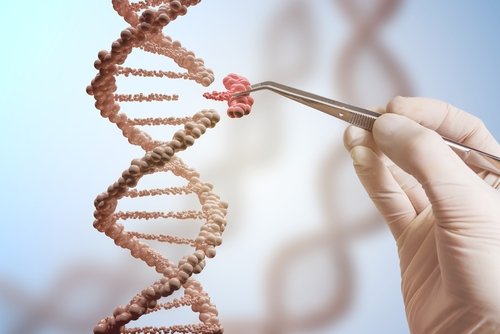Gene Therapy Shows Long–Lasting Effects in Animal Model of Myotubular Myopathy

A gene therapy treatment may restore the genetic mutations of myotubular myopathy, a type of muscular dystrophy that affects the skeletal muscles.
In a previous study, a team of researchers at the University of Washington School of Medicine in Seattle found that the gene therapy could potentially save the lives of dogs with the disease. Now, the same team followed the two dogs that were treated with the adeno-associated virus (AAV) gene therapy for four years. They evaluated gait, strength, respiration, neurological function, muscle pathology, AAV vector copy number (VCN), and transgene expression in the dogs.
Four years after the researchers used the AAV-mediated gene therapy, which replaced the MTM1 gene, they found that the gait, respiratory performance, neurological function, and pathology of the dogs remained comparable to healthy controls. According to the researchers, the findings support clinical trials in human patients with myotubular myopathy.
“This regenerative technology, termed AAV gene transfer, provided long-lasting benefit to the entire musculature of affected dogs that would have otherwise perished, extending a healthy lifespan for more than 4 years,” Martin Childers, senior author of the study and a researcher at UW Medicine Institute for Stem Cell and Regenerative Medicine, said in a news release.
The study with the findings, “Long-term effects of systemic gene therapy in a canine model of myotubular myopathy,” is published in the journal Muscle & Nerve.
X-linked myotubular myopathy is a rare hereditary condition that affects muscles used for movement (skeletal muscles). It is estimated to affect about 1 in 50,000 male births. This pediatric disease is caused by the absence of the protein myotubularin.
Male babies with this condition have muscle weakness (myopathy) and decreased muscle tone (hypotonia) that are usually evident at birth. The muscle problems in myotubular myopathy impair the development of motor skills such as sitting, standing, and walking. Affected infants may also have difficulties with feeding due to muscle weakness.
Babies with myotubular myopathy often do not have the muscle strength to breathe on their own and must be supported with a ventilator. Boys born with the condition often die in the first year of life.
An April press release reported that a collaborative team of researchers from Genethon biotech in France, the University of Washington, and Harvard Medical School demonstrated the efficacy of the AAV gene therapy in a large animal model with the disease.
The AAV therapy was administered by intravenous injection in 10-week-old dogs that showed first symptoms of the disease. The treatment appeared to restore muscle function, and the dogs were indistinguishable from healthy dogs nine months after the single injection.






